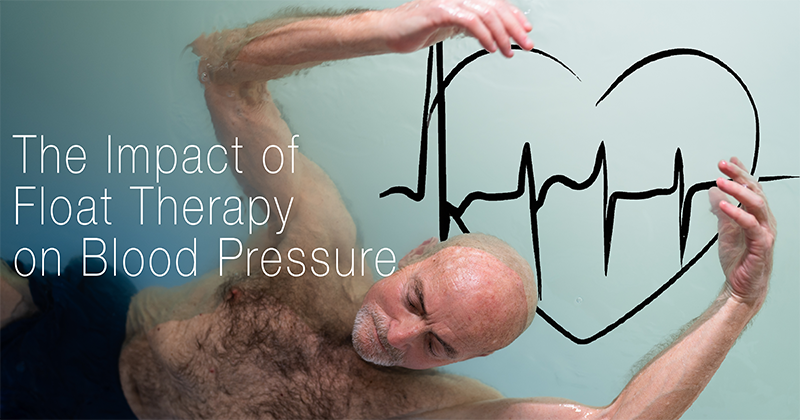Many Americans struggle with hypertension.
While medications, acupuncture and lifestyle modifications can help people decrease their blood pressure, studies have found therapeutic flotation is also effective in reducing blood pressure and easing stress and anxiety.
In recent years floatation tanks have become an increasingly popular holistic treatment used to address various conditions, including:
- Chronic pain
- Insomnia
- Cardiovascular Diseases
How Does Float Therapy Help Blood Pressure?
In order to understand how flotation decreases blood pressure, it’s essential to discuss what may cause hypertension in the first place.
While diet plays a significant role in high blood pressure, additional causes may include chronic stress and anxiety. When a person experiences a stressful event, their body releases a surge of hormones, including cortisol and epinephrine. This surge triggers the “flight or fight” response, which causes a dramatic increase in blood pressure. In addition, some individuals who experience chronic or post traumatic stress may also experience hypertensive episodes.
The long-term effects of high blood pressure include a higher risk of stroke, aneurysm, heart failure, and heart attacks.
Research on Float Therapy and Blood Pressure
Float therapy is a natural and effective way to decrease blood pressure in those experiencing anxiety symptoms.
A study published in 2022 found significant cardiovascular effects in participants who spent time in a floatation tank. A floatation tank is a sensory deprivation tank filled with water and Epsom salt. Inside the tank, the water remains at skin temperature, and the buoyancy of the Epsom salts gives the floater the sensation of being in a zero-gravity environment.
This feeling lulls the floater into a deep meditative state.
In this study, researchers recruited two groups of participants. One group reported feelings of anxiety, while the other group did not. Researchers collected baseline data before the floatation session, including heart rate, systolic blood pressure, diastolic blood pressure, and breaths per minute.
After gathering this data, each subject experienced two types of relaxation activities. The first activity involved a film screening featuring serene landscapes and wildlife scenes. Researchers then collected physiological data after both sessions. The second activity was an 85-minute floatation session, while researchers continuously collected data through a Zephyr BioPatch electrocardiogram and a blood pressure unit. Researchers then analyzed the physiological data after both sessions.
While researchers did not notice a substantial change in heart rate, they did find a significant reduction in blood pressure and breathing rate after the floatation session. These changes also correlated with participants self-reporting a decrease in anxiety symptoms and increased feelings of well-being.
Final Thoughts
Research continues to grow regarding the additional benefits of flotation. Other studies have shown that flotation causes increased relaxation, reduced muscle tension, improved sleep habits, and improved mood. Those looking for natural, more holistic approaches to lowering their high blood pressure should consider flotation therapy.
Schedule a float with Float In Vermont!
Read the study here: https://www.ncbi.nlm.nih.gov/pmc/articles/PMC9780456/



